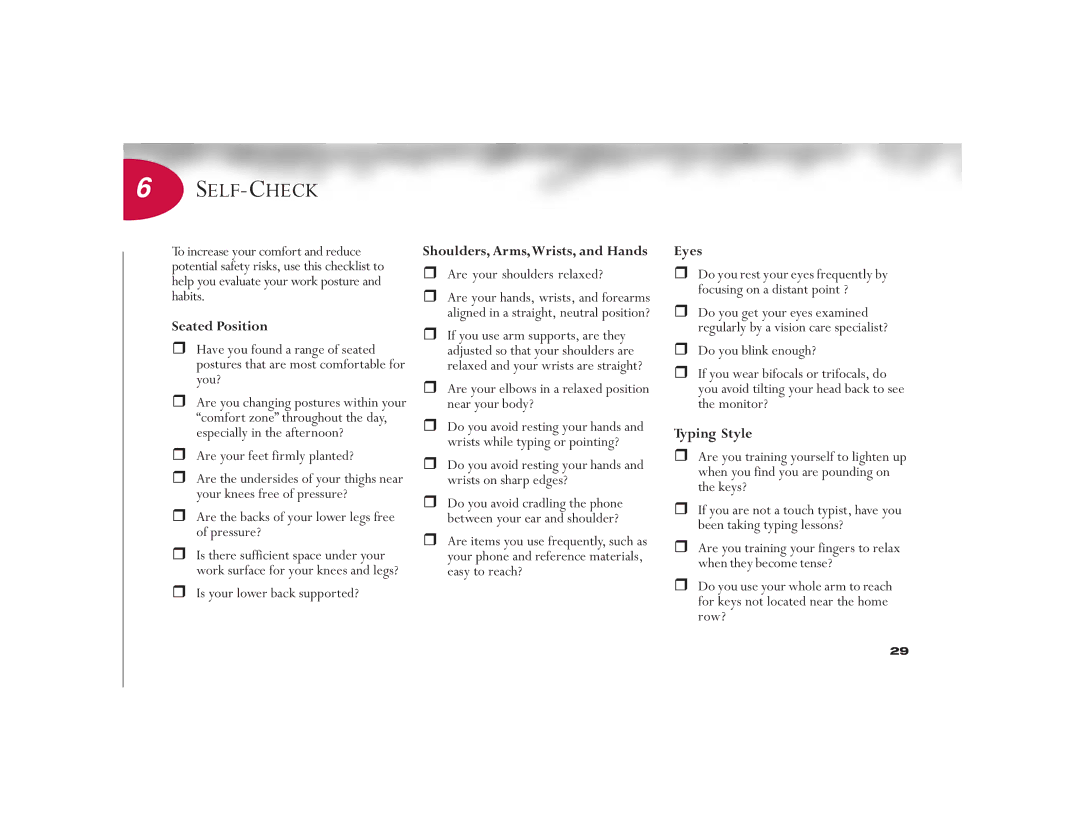
6SELF-CHECK
To increase your comfort and reduce potential safety risks, use this checklist to help you evaluate your work posture and habits.
Seated Position
rHave you found a range of seated postures that are most comfortable for you?
rAre you changing postures within your “comfort zone” throughout the day, especially in the afternoon?
rAre your feet firmly planted?
rAre the undersides of your thighs near your knees free of pressure?
rAre the backs of your lower legs free of pressure?
rIs there sufficient space under your work surface for your knees and legs?
rIs your lower back supported?
Shoulders, Arms,Wrists, and Hands
rAre your shoulders relaxed?
rAre your hands, wrists, and forearms aligned in a straight, neutral position?
rIf you use arm supports, are they adjusted so that your shoulders are relaxed and your wrists are straight?
rAre your elbows in a relaxed position near your body?
rDo you avoid resting your hands and wrists while typing or pointing?
rDo you avoid resting your hands and wrists on sharp edges?
rDo you avoid cradling the phone between your ear and shoulder?
rAre items you use frequently, such as your phone and reference materials, easy to reach?
Eyes
rDo you rest your eyes frequently by focusing on a distant point ?
rDo you get your eyes examined regularly by a vision care specialist?
rDo you blink enough?
rIf you wear bifocals or trifocals, do you avoid tilting your head back to see the monitor?
Typing Style
rAre you training yourself to lighten up when you find you are pounding on the keys?
rIf you are not a touch typist, have you been taking typing lessons?
rAre you training your fingers to relax when they become tense?
rDo you use your whole arm to reach for keys not located near the home row?
29
